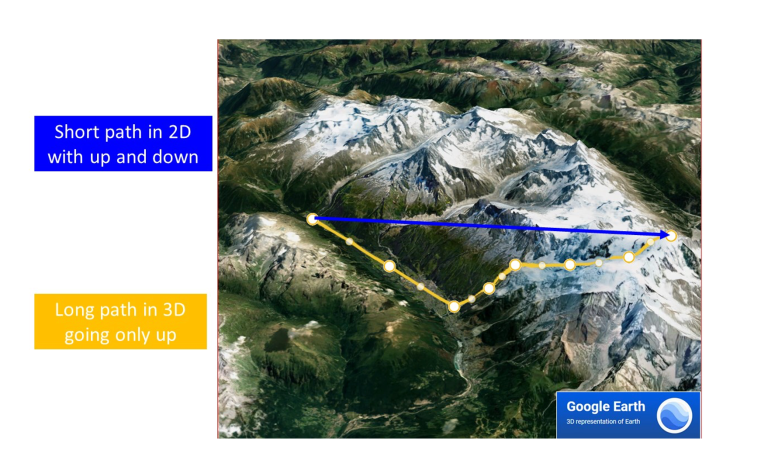Status and challenges of extended domain FWI Monday June 10th | Room 13
Convenors
- Gilles Lambaré (CGG)
- René-Édouard Plessix (Shell)
Description
Over the last fifteen years, FWI has become an essential tool in seismic imaging. Due to its very large computational size it is based on iterative local optimization schemes and so impeded by a high sensitivity to cycle skipping. Various approaches have been proposed to mitigate this issue. They are based on time- and space-shifts, Wiener filter, reflectivity, or phase-only information, and they aim at retrieving the low and intermediate wavenumbers of model parameters.
The concept of extended domain inversion as defined by Bill Symes in 2008 offers a general frame for recasting most of these approaches. “Extended” means that additional degrees of freedom are temporarily introduced in the modeling during the local optimization process to provide more efficient optimization paths. Such full wave approaches can involve extensions in the time or space domains or even in the spatiotemporal domain, but also can work in the image or data domain with a reflectivity model in addition to the velocity model.
In this workshop, we will discuss the different extensions, their advantages, and challenges.
Sub-Topics that will be covered in the workshop:
Sub-Topics that will be covered in the workshop:
- Image or data spaces approaches involving reflectivity like Differential Semblance Optimization, Migration stack enhancement, Reflection Waveform Inversion (RWI), Migrated-Based-Travel Time (MBTT) inversion, Joint Migration Inversion, …
- Time domain extension approaches where time lags or a time matching filters are considered in the cost function.
- Spatial domain extension approaches like receiver extension.
- Spatiotemporal domain extension approaches like Wavefield Reconstruction Inversion (WRI) or extended source FWI.

Participant Profile
Researchers, practitioners, students, and decision makers interested in better understanding the value and challenges of FWI.
| Time | Activity |
|---|---|
| 08:30 | Workshop Introduction |
| Session 1 | |
| 08:35 | Over 30 years of Migration Velocity Analysis based on Differential Semblance Optimization by Hervé CHAURIS (Mines, Paris) |
| 09:05 | A Joint Migration Inversion scheme with an extended reflectivity based on the local harmonic or spherical harmonic decomposition by Robert SOUBARAS (Aker BP) |
| 09:25 | Full Waveform Inversion by Model Extension by Bob Clapp (SEP) |
| 09:45 | Panel Discussion |
| 10:05 | Coffee break |
| Session 2 | |
| 10:20 | Extending the linear regime of FWI with extended sources: from theory to practice by Stéphane OPERTO (University Côte d’Azur, France) |
| 10:50 | Does a rabbit have three ears? by Raphaël VALENSI (OPERA) |
| 11:10 | Reflection FWI based on the linearized MBTT approach by René-Edouard PLESSIX (Shell) |
| 11:30 | Salt model building with elastic enhanced template matching full-waveform inversion by Xin CHENG (SLB) |
| 11:50 | Panel Discussion |
| 12:10 | Lunch |
| Session 3 | |
| 13:10 | A unified mathematical framework to extension and convexification strategies for full waveform inversion by Ludovic METIVIER (University of Grenoble, France) |
| 13:40 | Activate multiples and converted waves in reflection waveform inversion, by Eric VERSCHUUR (Delft University of Technology, Delft, The Netherlands) |
| 14:00 | Practical considerations for multi-parameter inversion using the full wavefield by Tom RAYMENT (DUG) |
| 14:20 | Maximizing the contribution of reflections by dynamic resolution time-lag full-waveform inversion by Min Wang (CGG). |
| 14:40 | Panel Discussion |
| 15:00 | Final discussion and Wrap out |
| 15:30 | End of the Workshop |


